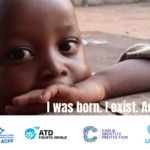OBJECTIVES
Child Identity Protection collaborates with States, UN agencies, international organisations and other stakeholders to ensure that international standards as well as regional standards are fully respected.
Specifically Child Identity Protection seeks to build on the work of the United Nations Legal Identity Agenda, who focuses on civil registration and vital statistics, by considering the family relations aspect of legal identity.
Justice Vui Clarence Nelson, Member of the UN CRC Committee from the Pacific Region has observed that
“CHIP, probably the only international organization that works comprehensively throughout the world in the area of a child’s right to his/her identity and nationality. In an age where many children are displaced by migration, poverty, war and other causes, their work is of great importance. By its very nature, it relates significantly to birth registration. CHIP is based in Geneva and does much work for the UN and other international organisations like UNICEF.”
Child Identity Protection advocates for laws, policies and practices to uphold family identity rights through:

Acts should be prevented and prohibited that can lead to gaps in information (naissance sous X, baby boxes, discrimination leading to abandonment, anonymous gamete donations etc).

Robust gatekeeping frameworks should be in place to ensure that any modification of identity only occurs after a best interest assessment/ determination of the child’s needs. These frameworks should exist in informal and formal care situations including kinship care, foster care, kafalah, residential care, national adoption, intercountry adoption, surrogacy, etc.

Activities will focus on preventing the sale of children and their identity. Efforts to prohibit the creation of “paper orphans” and “paper biological children” will be pursued to ensure that records are accurate and due processes are respected.

Databases, appropriate laws and practices to support access by children in line with evolving capacity. For example recent studies in the EU context concerning identity in migration and refugee situations show the capital importance of portability of identity across international borders, especially when a third country is involved.

Promotion of transnational and transitional justice, recourse to OPIC, strategic litigation, DNA testing and international/regional/national jurisdiction and jurisprudence (e.g. investigations, remedies, counselling)
HOW WE WORK
In line with its objectives, Child Identity Protection works with multi-agency partners to promote children’s legal identity rights by:
1/ Undertaking robust research to understand the phenomenon as well as identify promising practices to respond to existing limitations
2/ Developing and implementing legislative and policy frameworks that seek to protect these rights, as well as appropriate responses when these rights are contravened
3/ Advocating for these rights in international, regional and national fora
4/ Equipping professionals with tools, resources and training
5/ Ensuring voices of persons with lived experiences are central to relevant discussions
6/ Coordinating research, legislative and policy work, advocacy and practice at Geneva Headquarters to support the protection of children and the empowerment of its members across the globe





